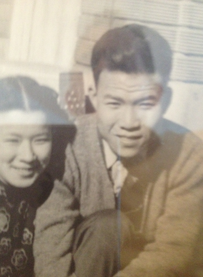
In Memory of Andrew Yen
Life goes very fast. We blink and our 20's are gone. Another blink and our 30's have gone by. A few more blinks and we are 40, 50, 60, 70. Most of us spend our brief time here racing from perceived milestone to perceived milestone, onwards towards our inevitable end. We fail to pause, to breath, to enjoy the beauty of a tranquil moment, the peacefulness of a quiet night. This is a failing. A failing Andrew Yen did not have. On the exterior, Andrew was something of a soldier--strong, dedicated and hard-working. When he first came to the US from China in the late 40's, he began work at a brokerage firm in NYC. One day, his boss came to him and told him he would have to be demoted. "It's not me," his boss said. "I know you're great. It's the clients; they don't want a Chinese on their accounts." Andrew quit on the spot. He walked out and never looked back. It was the principle of the thing. He was a soldier--courageous, principled, a man of integrity. But inside? Inside, he was a poet. Everything he touched bloomed with life. He tended a garden for many years in which the vegetables and flowers thrived under his gentle, calm, patient care. He understood how to stop, to pause, to savor the moment, to nurture life without rush, without pressure. Andrew created beauty and poetry and stillness out of the cacophony that sometimes surrounded him. From his rich, expressive brushstrokes of Chinese calligraphy to his articulate English prose that made each note and letter he sent a special treat; a gift, to his photographs, for which he won many awards, in which he captured solitude and beauty and depth all in a moment of patient breath. Andrew saw the brilliance in a deflating hot air balloon, sagging into the dirt. When everyone else ran off in search of the next thrill, Andrew waited, patient, sure the best was yet to come, and indeed snapped an unbelievable photo of the light piercing the sides of the colored fabric as they billowed down to earth that has taken the breath away from the many who have seen it. During his stay in the hospital and care center these past long weeks, he wrote my grandmother, his wife, poetry. Trying to reassure her that he would soon be with her again, he wrote, in part, "One day I'll pick up my sandals, walk through the front door and thank the Lord." It was, as it turns out, a different front door he entered, however, in my heart, I believe that he has arrived in a place full of the peace and loveliness he spent his life so patiently nurturing. This wonderful, beautiful man; this poet in the body of a soldier, has in fact picked up his sandals, walked through the front door and thanked the Lord. Those of us who knew him were lucky; those of us who loved him, luckier still.


 RSS Feed
RSS Feed
